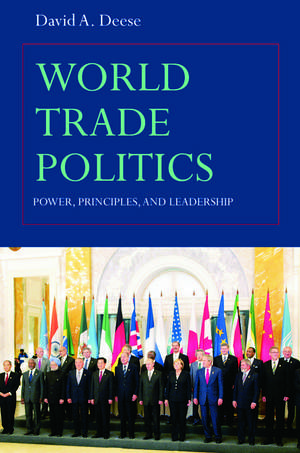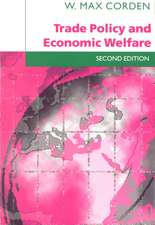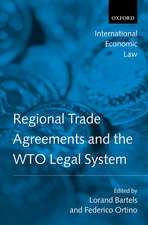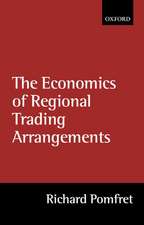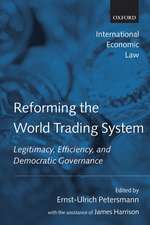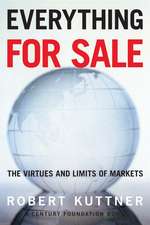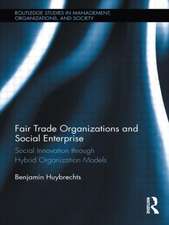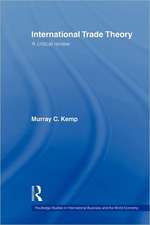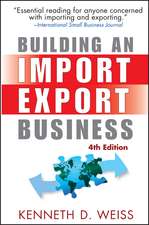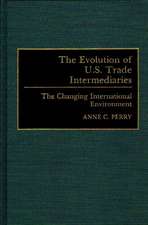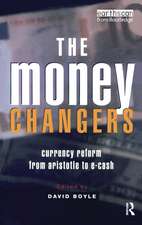World Trade Politics: Power, Principles and Leadership
Autor David A. Deeseen Limba Engleză Paperback – 4 oct 2007
World Trade Politics will be recommended reading for upper level undergraduate as well as postgraduate and research students, and will be essential reading for scholars of the global trade system.
| Toate formatele și edițiile | Preț | Express |
|---|---|---|
| Paperback (1) | 329.33 lei 6-8 săpt. | |
| Taylor & Francis – 4 oct 2007 | 329.33 lei 6-8 săpt. | |
| Hardback (1) | 838.99 lei 6-8 săpt. | |
| Taylor & Francis – 4 oct 2007 | 838.99 lei 6-8 săpt. |
Preț: 329.33 lei
Nou
Puncte Express: 494
Preț estimativ în valută:
63.01€ • 65.80$ • 52.04£
63.01€ • 65.80$ • 52.04£
Carte tipărită la comandă
Livrare economică 15-29 aprilie
Preluare comenzi: 021 569.72.76
Specificații
ISBN-13: 9780415774055
ISBN-10: 0415774055
Pagini: 238
Dimensiuni: 156 x 234 x 14 mm
Greutate: 0.34 kg
Ediția:New.
Editura: Taylor & Francis
Colecția Routledge
Locul publicării:Oxford, United Kingdom
ISBN-10: 0415774055
Pagini: 238
Dimensiuni: 156 x 234 x 14 mm
Greutate: 0.34 kg
Ediția:New.
Editura: Taylor & Francis
Colecția Routledge
Locul publicării:Oxford, United Kingdom
Public țintă
Postgraduate and UndergraduateCuprins
1. Principles, Power, and Leadership 2. What is Political Leadership in International Relations? 3. The Founding: World War II to the Turbulent 1970s 4. GATT, 1975 – 1995: From Endangered Species to Unprecedented Authority 5. Foundations for the Future: Can the WTO Become Relevant to Development and its Least Developed Members? 6. Why International Institutions Fail and Succeed
Notă biografică
David A. Deese of the Department of Political Science at Boston College is editor of The New Politics of American Foreign Policy and the book series, The Library of Essays in International Relations. His research focuses on international organizations, political economy, and foreign policy.
Recenzii
"World Trade Politics is a masterful work of historical analysis that makes a signal contribution to the field of International Political Economy. Combining meticulous empirical research with an unusually comprehensive reading of the formal literature, Deese develops an integrated theory of political leadership in international negotiations that is at once eclectic and nuanced. His tracing of the evolution of the GATT/WTO regime has applicability far beyond the issue of trade relations alone." - Benjamin Jerry Cohen, Louis G. Lancaster Professor of International Political Economy, University of California, Santa Barbara, USA
"A comprehensive, insightful analysis of success and failure in GATT/WTO international trade negotiations over the past sixty years. In particular, Deese gives credible (and long overdue) emphasis to the decisive role played by effective political leadership." - I.M. Destler, Visiting Fellow, Peterson Institute for International Economics, USA
"David Deese asks the important question how the GATT expanded from its modest 1947 beginnings to become one of the most powerful international institutions in our world today. He constructs original answers using the concept of leadership by US and other officials in negotiations through the decades. A valuable contribution that details leadership failures as well as successes and considers the prospects for developing countries." - John Odell is Director, Political Economy and Public Policy Program, University of Southern California, USA
"The rise of China, India, and Brazil present important questions about leadership in the global economy . In this engaging and important new book, Professor David Deese uses case studies to investigate trade negotiations and thus, to ask and answer important questions about leadership and power. Policymakers would do well to read this book as they seek to understand and juggle the demands of their constituents with their responsibilities to the global community at large. Scholars will benefit from a greater understanding of how the U.S. and the EU provided intellectual and practical leadership of trade negotiations." - Susan Ariel Aaronson, Research Associate Professor, George Washington University, USA
"A comprehensive, insightful analysis of success and failure in GATT/WTO international trade negotiations over the past sixty years. In particular, Deese gives credible (and long overdue) emphasis to the decisive role played by effective political leadership." - I.M. Destler, Visiting Fellow, Peterson Institute for International Economics, USA
"David Deese asks the important question how the GATT expanded from its modest 1947 beginnings to become one of the most powerful international institutions in our world today. He constructs original answers using the concept of leadership by US and other officials in negotiations through the decades. A valuable contribution that details leadership failures as well as successes and considers the prospects for developing countries." - John Odell is Director, Political Economy and Public Policy Program, University of Southern California, USA
"The rise of China, India, and Brazil present important questions about leadership in the global economy . In this engaging and important new book, Professor David Deese uses case studies to investigate trade negotiations and thus, to ask and answer important questions about leadership and power. Policymakers would do well to read this book as they seek to understand and juggle the demands of their constituents with their responsibilities to the global community at large. Scholars will benefit from a greater understanding of how the U.S. and the EU provided intellectual and practical leadership of trade negotiations." - Susan Ariel Aaronson, Research Associate Professor, George Washington University, USA
Descriere
By examining in detail the key role of leadership in the GATT/WTO system, this book offers new insights into trade bargaining from the inception of the GATT through to the current WTO Doha Round.
